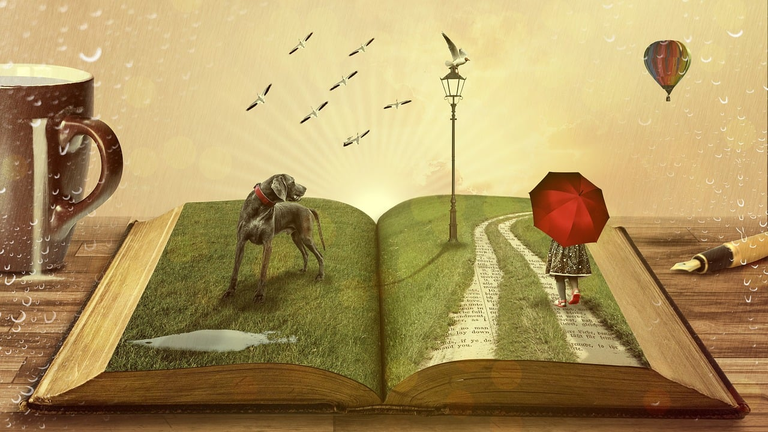Music plays a huge role in our daily lives, whether it's getting us up in the morning or putting us to sleep. It speaks to our feelings, brings us together, and helps us heal. But what if music was no longer around? What could possibly take its place?
Storytelling is one option. There is no doubt that people have been coming together from ancient times to create exciting stories: stories that are meaningful, evoke emotions and responses in the audience, and/or ring out in the minds of the audience from the very first minute. In a way, storytelling is quite like music.
Stories captivate us and can make us laugh, cry, feel motivated and even take us to a different world. If there were no music, the stories could help people to be close and discern the other’s perspective. Perhaps you have seen friends and families taking turns telling each other interesting stories that involve elements of drama and suspense. The rhythmic recitation of the storyteller and gestural activity may imitate musical participation.
In addition, stories can be oral or written, or even presented in other media in the form of movies, theaters, etc. It is closely associated with the emotional spectrum that music is known to encompass. Tales and myths are used as a means of giving advice to listeners and describing the values of a certain culture. As meaningful lyrics, they assist us in understanding our difficulties. People also get bonded through the shared experience of story listening and knowing about other people’s lives.
Storytelling motivates in a similar way to how songs motivate. By pushing through adversity, goals seem more attainable. In the same way that music is released on digital platforms, podcasts and audiobooks are convenient ways to tell stories. Like music, information-entertaining games weave elaborate narratives into consumer decisions and outcomes.
Additionally, we can't deny that removing music from the lives of people would lead to a state of silence, but storytelling can take on the challenge of providing information, motivation, and entertainment. Stories, whether they are passed down from generation to generation, written in books or shared on the Internet, can all be compelling in their own right. We can therefore survive without melodies if we tell stories that describe the whole range of human existence, in the same way that the melodies of the songs that people sing could continue to satisfy the need of humans for meaning, emotion, and community as long as they continue to tell stories.
The rhythm and excitement of well-timed stories bring groups together with laughter, tears, and wisdom. Even though narratives aren't synonymous with songs, the way they're created combines them to make the listener think about what's really important and move them into deep reflection. We're born with the ability to think, and that's something that will stay the same whether or not music is played.
Posted Using InLeo Alpha
